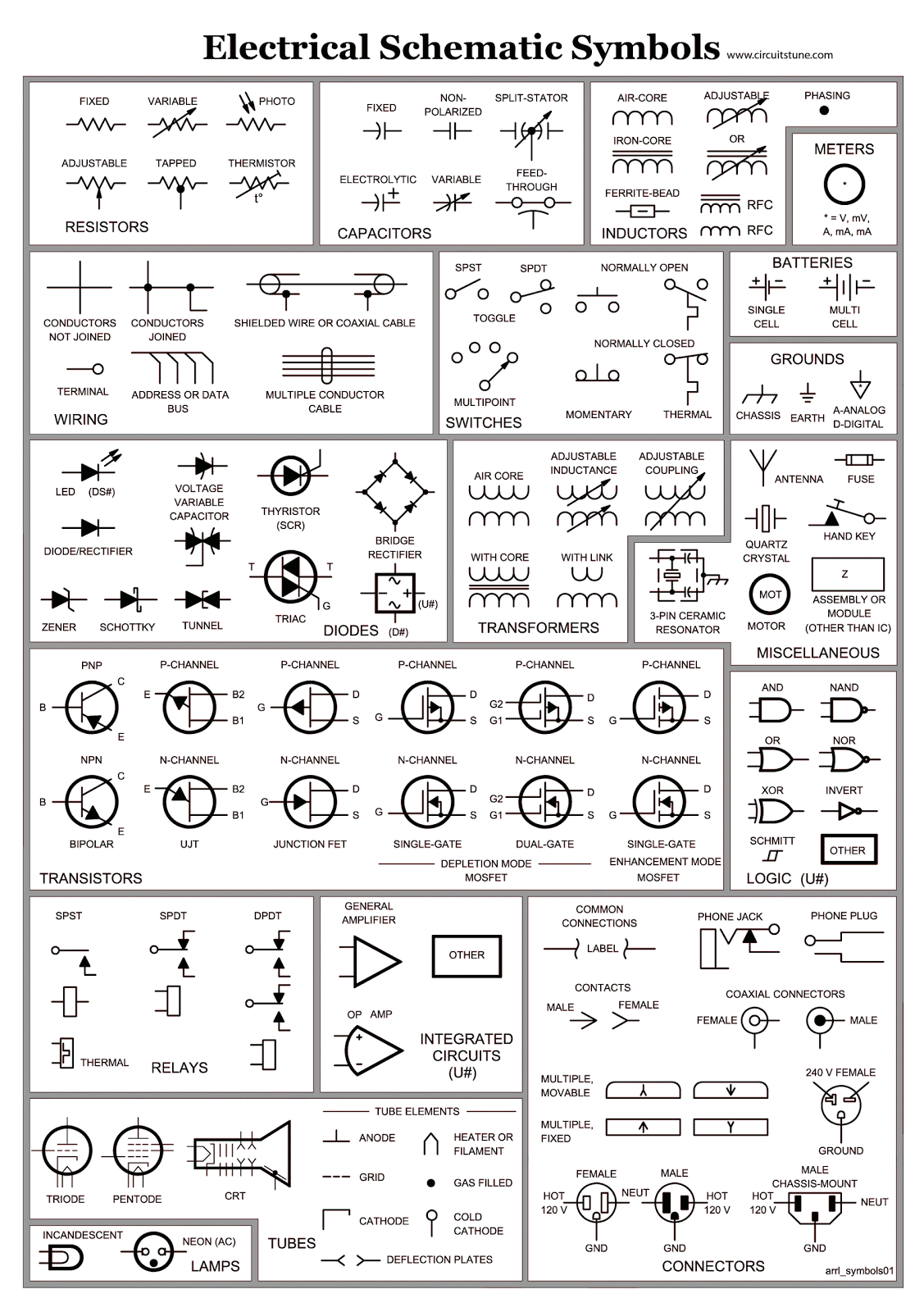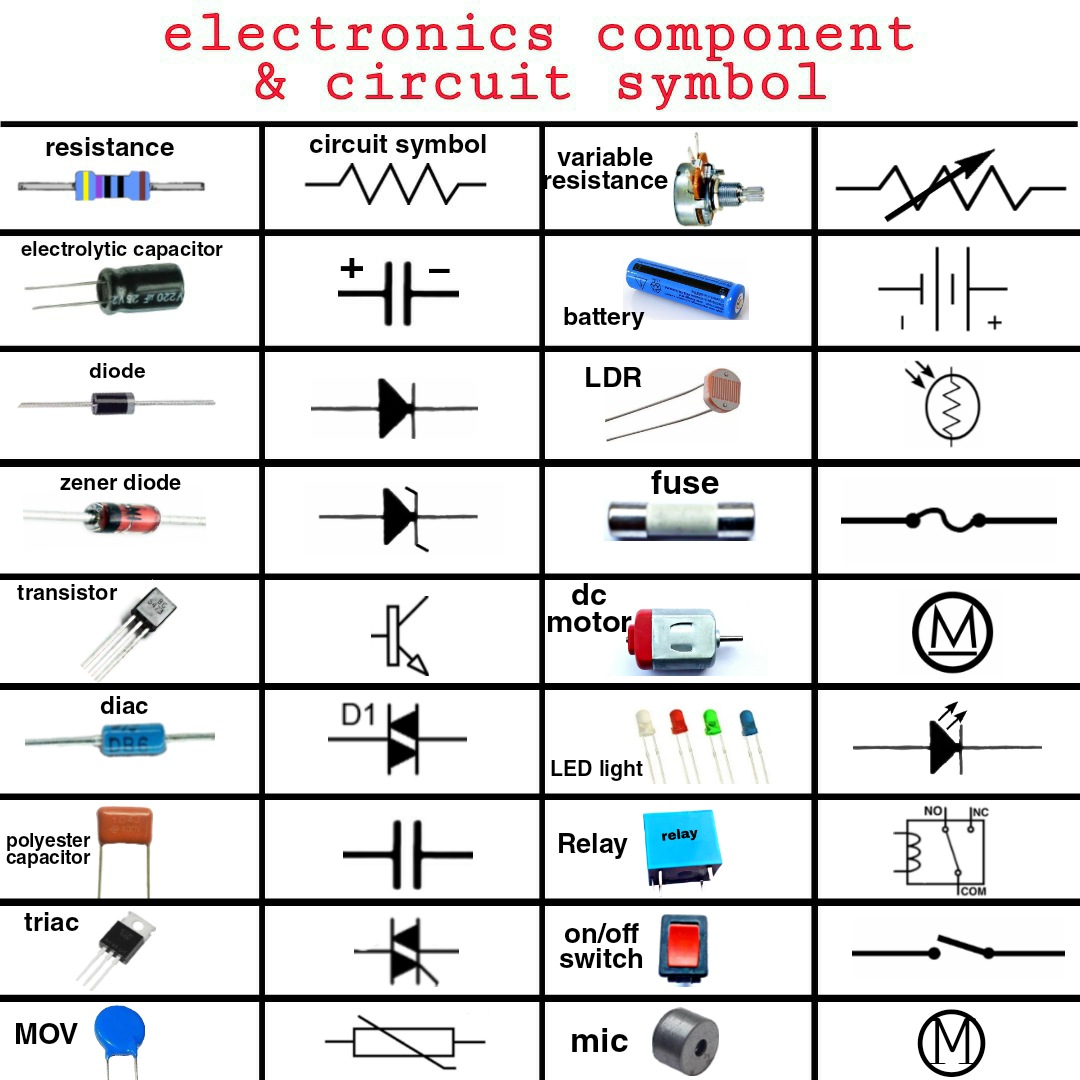Decoding Circuit Diagrams: Your Guide to Electronic Symbols

Ever looked at a circuit diagram and felt like you were deciphering hieroglyphics? Don't worry, you're not alone! Understanding electronic symbols is the key to unlocking the world of electronics, from simple circuits to complex gadgets. This guide will walk you through everything you need to know about these crucial symbols, including where to find handy electronic symbol PDFs.
Electronic symbols are standardized representations of electronic components used in circuit diagrams. These diagrams serve as the blueprints for electronic systems, showing how different components connect and interact. Without a standardized set of symbols, designing, building, and troubleshooting electronic circuits would be a chaotic mess. Imagine trying to build a house with blueprints that used different symbols for doors and windows every time!
So, where did these symbols come from? Over time, as electronics evolved, the need for a common visual language became apparent. Organizations like the Institute of Electrical and Electronics Engineers (IEEE) and the International Electrotechnical Commission (IEC) played key roles in standardizing electronic symbols. This standardization ensures that engineers and hobbyists worldwide can understand and collaborate on circuit designs regardless of language barriers.
The importance of a readily available electronic symbols PDF cannot be overstated. Having a quick reference guide in a portable digital format is incredibly useful for students learning electronics, hobbyists tinkering with projects, and even seasoned professionals who need a quick refresher. These PDFs often contain not only the symbols themselves but also valuable information about the components they represent, such as their function and typical applications.
However, finding the right electronic symbols PDF can sometimes be a challenge. While numerous resources exist online, not all are created equal. Some may be outdated, incomplete, or simply poorly organized. Later in this guide, we'll explore some reliable sources for comprehensive and up-to-date electronic symbol PDFs.
Early electrical diagrams used realistic depictions of components, which were time-consuming to draw. The shift towards simplified, abstract symbols was a major advancement, making diagrams easier to create and interpret. This evolution mirrored the increasing complexity of electronic systems, demonstrating the need for efficient communication through standardized symbols.
A resistor symbol, for instance, is a zigzag line. This simple representation quickly conveys the component's function: to resist the flow of current. Similarly, a capacitor symbol, two parallel lines, reflects its ability to store electrical charge. These visual cues are essential for understanding circuit behavior.
Benefits of having access to an electronic symbols PDF include quick reference during circuit design, aid in troubleshooting faulty electronics, and facilitating effective communication among engineers and hobbyists. For example, a student building a simple amplifier circuit can quickly refer to a PDF to identify the correct symbol for a transistor and its pin configuration.
To effectively use electronic symbol PDFs, start by identifying a reliable source. Download a comprehensive PDF that includes both common and less-common symbols. Familiarize yourself with the organization of the document and use the search function to quickly locate specific symbols. Regularly review the PDF to reinforce your knowledge.
Advantages and Disadvantages of Electronic Symbol PDFs
| Advantages | Disadvantages |
|---|---|
| Portability and accessibility | Requires a device to view |
| Easy searchability | Potential for outdated information |
| Often free or low cost | Reliance on digital access |
Best practices include verifying the PDF's source for accuracy, printing a physical copy for offline use, regularly updating the PDF to stay current with standards, using the PDF in conjunction with other learning resources, and focusing on understanding the underlying principles behind the symbols.
Real-world examples include using an electronic symbols PDF to troubleshoot a malfunctioning radio, design a custom circuit board for a robotics project, repair a broken appliance, understand the wiring diagram of a car, and teach electronics to students.
Challenges related to electronic symbol PDFs might include finding a comprehensive and up-to-date document, difficulty understanding complex symbols, confusion with similar-looking symbols, lack of interactive elements, and navigating large PDFs on small screens. Solutions involve cross-referencing multiple sources, using online tutorials, joining online communities for clarification, using dedicated software for circuit design, and printing relevant sections of the PDF.
FAQs: What is the symbol for a diode? (arrow pointing towards a line) What does the ground symbol represent? (zero voltage reference point) What is the symbol for a battery? (two parallel lines of different lengths) What does the symbol for a resistor look like? (zigzag line) What is the symbol for an LED? (diode symbol with arrows pointing outwards) What is the symbol for a switch? (line with a break and a diagonal line) What is the symbol for a transformer? (two coils facing each other) What is an integrated circuit symbol? (rectangle with pins)
Tips and tricks for utilizing electronic symbol PDFs effectively include bookmarking commonly used symbols, creating flashcards for memorization, using annotation tools to add notes, printing sections for offline access, and cross-referencing with online simulators to see the symbols in action.
In conclusion, mastering electronic symbols is essential for anyone working with electronics. From simple repairs to complex design projects, understanding these symbols is like knowing the alphabet of circuits. Electronic symbols PDFs provide a valuable resource for learning, referencing, and applying this crucial knowledge. By leveraging these readily available tools and following the best practices outlined in this guide, you can confidently navigate the world of circuit diagrams and unlock your potential in electronics. So, grab a reliable electronic symbol PDF, start exploring, and empower yourself to decode the language of electronics! Remember, continuous learning and practice are key to becoming proficient in interpreting and utilizing electronic symbols effectively. Embrace the challenge, and you'll find the world of electronics becomes much more accessible and rewarding.
The allure of sherwin williams deep blue
Unlocking the charm of farrow and ball teresa green 236
Elevating everyday style exploring the timeless appeal of lee bootcut jeans for women







.jpg)
